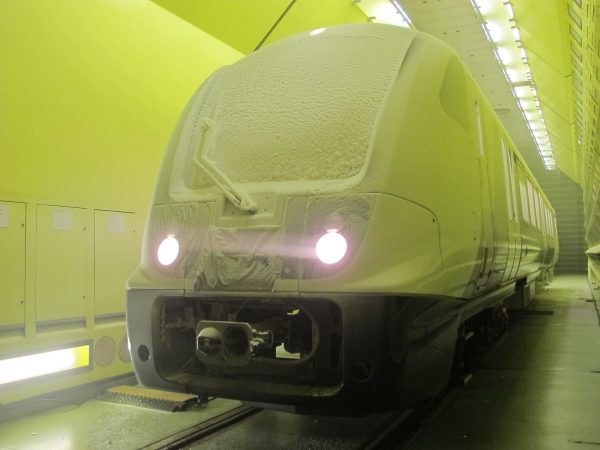Although a lot of CO2 emitting concrete was used in building the Elizabeth line, it could be carbon negative in as little as a decade, according to Crossrail legacy estimates.
Crossrail has estimated that the CO2 emissions from the construction phase of the Crossrail project are in the order of 1.7 million tonnes. To put that into context, the UK’s average carbon footprint is about 10 tonnes CO2 per person per year – so building the Elizabeth line has been the equivalent to the annual CO2 emissions of 170,000 people.
However, once the railway is operational, there will be reductions in CO2 emissions due to the displacement of car journeys and the replacement of diesel trains on the existing network.
So how quickly does the reduced carbon emissions offset the construction?
There’s a fairly wide range of estimates as to how large the reduction will be, as there’s a degree of uncertainty as to how many people will return to commuting and switch to the Elizabeth line, and some variation in the service patterns of the trains. That said, even in post-pandemic times, public transport upgrades almost always underestimate demand, and passenger numbers usually exceed what was forecast.
So the range of annual reductions is between 70,000 to 225,000 tonnes of CO2, which means that building the Elizabeth line will be carbon neutral between 7 and 26 years after opening, with the most likely range being 9 to 13 years after opening.
With even post-pandemic demand pent up, especially in the middle of the week as more people switch to a Tues-Wed-Thur commute, and weekends almost back to pre-pandemic levels, it’s not unreasonable to go for a quicker payback time on the CO2 emissions during construction.
In a decade then, London’s carbon dioxide emissions from transport will start to turn negative compared to how they would have been without the Elizabeth line.
While obviously a very good thing in itself, what this also reminds us though, is that for the UK to migrate to a low carbon economy, we need to build a low carbon economy. That will inevitably mean some CO2 emissions upfront as we build the new transport and industry, but so long as the payback is fast, then this is a very good thing.
For example, the construction of HS1 and the Channel Tunnel went carbon negative after just 13 years. The Elizabeth line looks like it may go carbon negative even quicker.
Maybe someone can tell the anti-railway lobby that if they want a low-carbon transport in the future, then it needs to be built today.
Investing in public transport today reduces our long term impact on climate change and also delivers lots of shiney new trains, loads more space for people to travel in comfort, and new stations to arrive at. What’s not to like about that?








I suspect anti-railists will say cars are going electric ie. ‘carbon-free’ anyway. But building & operating an electric railway line is surely better than building & maintaining new roads & more vehicles – even electric ones…
electric cars are there to save the automotive industry, not the planet
Is it really negative if its not sequestering carbon?
“turn negative compared to how they would have been without the Elizabeth line.”